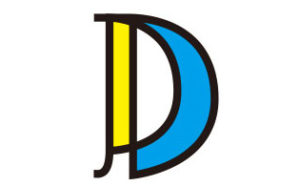Today’s Topics: Jan. 27, 2021
1. How I Helped My Dad Die
2. Prue Leith shares her personal story
3. Changes to Hawaii MAiD law considered
4. My Life My Choice
Message: 1
How I Helped My Dad Die
Bloomberg Businessweek
By Esme E. Deprez, Jan. 27, 2021
In this lengthy article, the author tells the tale of her father, a
distinguished and athletic epidemiologist, whose 75-year-old body,
ravaged by ALS (amyotrophic lateral sclerosis, or motor neurone
disease), led him to become only the second resident of the Maine to
take advantage of that U.S. state’s newly passed medical aid in dying
law. “He’d always said he’d sooner disappear into the woods with his
Glock than end up on a ventilator or a feeding tube, alone in an
institution. The law provided a more palatable path.”
The author provides an overview of aid in dying laws around the world,
talks about Final Exit Network and Dignitas, and notes how “Most
Americans support giving terminally ill individuals the choice to stop
living. Gallup says solid majorities have done so since 1990 (ranging
from 64% to 75%, up from 37% when it first polled on the issue in
1947.)”
Highlighting the ethical principle that helping one’s loved ones have
a peaceful passing, the author concludes, “It turns out he was
teaching me until the end. I couldn’t change my dad’s decision about
how and when to die. Nor could I honor his right to be in control
without surrendering my own. So I helped the man who’d brought me into
this world to leave it.”
The full article is at this link. An inexpensive short-term
subscription may be required:
https://www.bloomberg.com/news/features/2021-01-27/death-with-dignity-how-i-helped-my-dad-die
Message: 2
Prue Leith interview on British network ITV
The U.K. group Dignity in Dying has tweeted a powerful video by Prue
Leith which appeared on the British television channel ITV, describing
the suffering her brother went through as he died of bone cancer. Ms.
Leith is a famed British-South African restaurateur, chef, caterer,
television presenter/broadcaster, businesswoman, journalist, cookery
writer and novelist. She is Chancellor of Queen Margaret University,
Edinburgh. She also co-hosts, with Paul Hollywood, The Great British
Baking Show.
The 1 minute 40 second clip, which was tweeted on January 18, had been
seen by more than 9700 people by January 29. “My brother died in
hospital. He had bone cancer. Bone cancer is unbelievably
painful…He was in agony. And in the end …he died of pneumonia ..
And that is a horrible death too, because you drown in your own
phlegm.”
Dignity In Dying notes that, “Having watched her brother die a painful
death from bone cancer,
@prueleith is passionate that everyone should have the right to decide
how they die.”
Watch the clip on Twitter at:
https://twitter.com/DignitySAfrica/status/1354011841412915200
Message: 3
A solution to Our Care, Our Choice Act problem
West Hawaii Today
By Caroline Kunitake, Jan. 29, 2021
“The Our Care, Our Choice Act has been in effect in Hawaii for over
two years now. Yet many eligible terminally ill patients are having
trouble accessing the law, causing needless suffering…
“Senate Bill 839/House Bill 487 has a solution to this problem…”
The bill would a) extend nurse practitioners’ scope of practice to
support patients who choose MAiD, and b) waive the waiting period if
the patient is not likely to survive the mandatory waiting period.
Read more at:
https://www.westhawaiitoday.com/2021/01/29/opinion/letters-to-the-editor-january-29-2021/
Message: 4
My Life My Choice (Queensland, Australia)
Newsletter, Jan. 2021
The masthead of the January newsletter of the Australian group My Life
My Choice reads, “A newsletter produced for the dominant purpose of
educating and raising awareness of the need for voluntary assisted
dying reform in Queensland.” The headline: “Tell Your State MP: It’s
My Law,” with a subhead of “This time they must vote for you.” The
graphic shows the powerful slogan, “It’s MY LIFE, It’s MY CHOICE, and
I want MY LAW.” Interior pages highlight strong support for voluntary
assisted dying in New South Wales, support by Australian doctors for
VAD, progress on Spain’s proposed new law, and other updates


